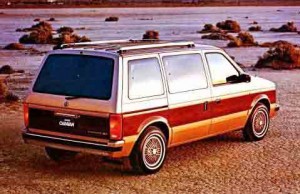
That older car is far more likely to be putting out substantially more pollution than current models, according to researchers.
That beat-up junker in your neighbor’s driveway? It’s likely to produce more pollution during a long day’s commute than some newer vehicles emit driving cross country, according to various researchers.
And a new study out of Canada has tried to quantify the pollution gap. By monitoring traffic in downtown Toronto, scientists found that 25% of the cars they measured produced 95% of the total particulates and 93% of the carbon monoxide.
“As we looked at the exhaust coming out of individual vehicles, we saw so many variations. How you drive, hard acceleration, age of the vehicle, how the car is maintained – these are things we can influence that can all have an effect on pollution,” author Greg Evans explained.
The University of Toronto researchers made on-the-spot measurements of the exhaust from 100,000 vehicles driving past air sampling probes set up on one of Toronto’s busiest roads. They confirmed that a relatively small number of older or badly tuned vehicles produced the vast majority of harmful emissions. A quarter of the vehicles they measured produced:
- 95% of black carbon, the particulates often linked to lung disease;
- 93% of carbon monoxide; and
- 76% of benzene, toluene, and other volatile organic compounds known to be carcinogens.
(Women driving more miles than ever in the U.S. For more, Click Here.)
“The most surprising thing we found was how broad the range of emissions was,” said Evans.
The researchers confirmed that automotive pollution is particularly severe near freeways and other high-traffic roads. But they also found that emissions spread farther than previously known. Those living or working as far as 900 feet downwind from a highway can be exposed to twice the pollution of those further away.
(Click Here for details about four of seven midsizes utes performing poorly in crash tests.)
Prior studies had estimated that the worst pollution was generally contained within an area no more than 300 or so feet downwind.
That’s bad news for a sizable share of Canadians – and likely for Americans as well. Researchers noted that one in three of those living north of the border – including half the residents in Toronto – fall within the newly recognized pollution danger zones, which range from four-lane streets with steady traffic to 10-lane highways.
“We used to think that living near a major road meant that you lived near a lot of air pollution,” said Evans. “But what we’re finding is that it’s not that simple, someone living right on a major road in the suburbs may not be exposed to as much pollution as someone living downtown on a side street near many major roads.”
(To see more about Google acknowledging 11 crashes with autonomous cars, Click Here.)
Air pollution, in general has been linked to a number of health problems, including asthma and other respiratory diseases – and as many as 200,000 premature deaths annually in the U.S. A Canadian study published in Canada earlier this year specifically linked traffic pollution to delayed cognitive development in children.

Gee, didn’t that $24,000 per clunker government debacle take care of that “old car problem?” Meh, guess not. Maybe we need a re-boot, huh?
The cash for clunker program probably resulted in a lot of restorable classics being crushed and lost forever…
As far as the polluters are concerned, that’s why there should be an annual mandated Federal auto emissions and safety inspection. Many states have these but some have discontinued them. There are a lot of dangerous vehicles on the roadways in the hands of people with poor judgment.
If it had really been $24K per clunker, it might have made a dent in it. But if you’re driving a 20 year old car, you’re poor and $3000 isn’t going to be enough to push you into a new car.
All those old cars should be donated to 1-800-Charity Cars. You can get a full fair market tax deduction if your vehicle is provide free of charge to a qualified, struggling family. The older vehicles that can’t pass inspection and are causing all the pollution can be sold for parts, and the funds used to fix the newer/nicer vehicles being given away. It is a win for everyone and the environment. http://www.800charitycars.org